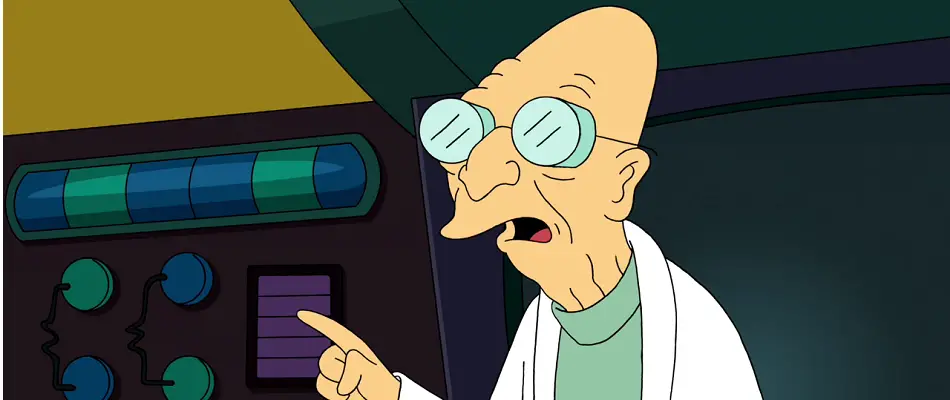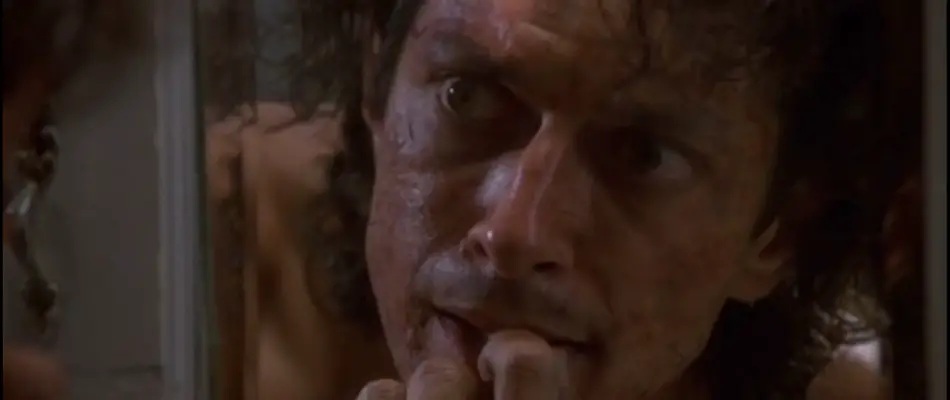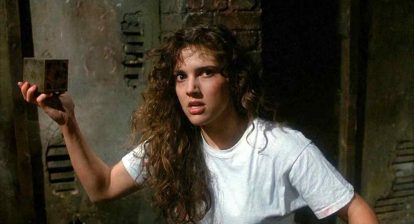One could actually say that the roots for the mad scientist character trope lay way back in Greek mythology. It seems like an unlikely garden for such a thing to grow from, but craftsman Daedalus certainly fits the bill. He created the expansive labyrinth which housed the fearsome Minotaur, and later crafted wings that helped him and his son Icarus escape imprisonment from a high tower. But things have changed a lot since then. Minotaurs are now shot on sight, and prisoners escape from towers using high-octane jetpacks.
As far as “modern” mad science goes, you don’t have to look any farther than the literary classics: Victor Frankenstein, Dr. Moreau, and Dr. Jekyll were the triad that broke the mold. Everybody knows them, so let’s just assume that they sit safely at the top of the list. There have been a long line of successors to the throne, though, and that’s why today we’re looking at Ten Memorable Mad Scientists.
Walter Bishop from Fringe
The most recently created character on this list, we know that Walter Bishop is a mad scientist because the first time we see him, he is literally locked up in a mental institution. It’s only through the intervention of his grifter son Peter and FBI agent Olivia Dunham that he is released…on the condition that he helps save the world at least once a week. His most impressive invention, created alongside his legendary partner William Bell, is a trans-dimensional portal to an alternate universe that is very much like our own, and yet drastically different. His continued use of LSD and other psychotropic drugs—along with the fact that portions of his brain have been surgically removed—make his behavior somewhat unpredictable. He’s surreal and lighthearted one moment and fiery and intense the next; but he’s always brilliant, and always unforgettable.
 Emmett Brown from Back to the Future
Emmett Brown from Back to the Future
Of all the scientists here, Emmett Brown is likely the most stable, so maybe it’s not fair to call him mad—but a list of wacky, eccentric scientists just didn’t seem all that appealing. Doc Brown has invented dozens of time-saving devices (some of them could rightly be called Rube Goldberg machines), not all of which work as well as intended. His greatest invention, though, works flawlessly: the time machine. Built out of a DeLorean (and later—or earlier, depending on how you look at the timeline—a steam train) and powered by the Flux Capacitor, all it takes is 1.21 gigawatts and 88 miles per hour to visit the past, destroy the present, or save the future—depending on your mood at the time.
 Professor Hubert J. Farnsworth from Futurama
Professor Hubert J. Farnsworth from Futurama
Good news, everybody! Due to his advanced age, the Professor can swing from super-genius to near-senility at the drop of a hat. Although he’s a big fan of doomsday devices, his most notable contributions to science operate on a decidedly less deadly scale: he’s responsible for the base design of all modern (that is to say, future) robots, as well as the technology that converts dark matter into usable energy. And that is to say nothing of the Smell-O-Scope, an invention that is equal parts Galileo and John Waters.
 Josef Heiter from Human Centipede
Josef Heiter from Human Centipede
Heiter was once a renowned surgeon whose specialty was separating conjoined twins. After retirement, he must have watched Basket Case one too many times, because now he’s concerned only with putting things together. He started off with canines, but has since moved on to human beings. I suppose it’s possible that there is some medical breakthrough to be found by sewing people together from tip to tail, but it seems highly unlikely. Especially to the poor soul trapped in the middle.
 Herbert West from Re-Animator
Herbert West from Re-Animator
As a medical student at Miskatonic University, West dedicates his studies to perfecting his reanimation reagent—a formula that can literally restore life to the dead. He has had some degree of success with cats, but this is a scientific marvel best suited for mankind. There are many factors that must be taken into consideration, though; everything from proper dosage to freshness of the corpse. If one little calculation is even slightly off, the subject may come back as a shambling, violent zombie. And that, of course, is where all the fun comes from.
 Kurt Leopold from Zaat
Kurt Leopold from Zaat
Leopold is a marine biologist and dedicated ecologist who has developed a serum that is capable of causing extreme mutation. After exposing himself to the formula, he becomes a giant killer catfish man, and seeks revenge against those who have wronged him. He also desires a mate, though. Oh, and he wants to jumpstart a new evolution for all of his marine creature friends. Yes, Leopold has a lot to accomplish in his new form, but he luckily has an organizational tool that is part calendar and part turntable—what I call the Zaat Wheel—to help keep him on task. Because even mad scientists can be absent-minded. Just ask that Flubber guy.
 Dr. “Frankenstein” Logan from Day of the Dead
Dr. “Frankenstein” Logan from Day of the Dead
I know that I said I wasn’t going to include Frankenstein in this list, but this isn’t the real Frankenstein. That’s just a cruel nickname bestowed upon Dr. Logan, the lead scientist in a military-based community that has taken to living underground in the wake of the zombie apocalypse. His experiments are ostensibly meant to determine the cause of, and find a cure for, the undead phenomenon, but he seems more concerned with dissecting them in graphic detail and attempting to domesticate them. His most successful subject is a dead man named Bub, who somehow recalls snippets of his former life—including the act of shaving and other mundane routines. Logan reportedly rewards his zombie pets with the flesh from dead soldiers. He better hope that the base commander doesn’t find out…
 Seth Brundle from The Fly
Seth Brundle from The Fly
Brundle may not have started out as mad—just a little weird, maybe—but he certainly gets there in a hurry after testing his TelePods on a human subject: himself. He successfully teleports himself from one location to another, appearing not only unharmed but in some instances even enhanced. It’s just unfortunate that he didn’t realize a common house fly had landed in the TelePod with him, and their DNA has become irrevocably mixed together within his body. He begins to change and deteriorate both physically and mentally, leading toward a gruesome transformation that will leave you questioning where the man begins and the fly ends. (Answer: they’re one and the same, and we call him Brundlefly).
 Jack Griffin from The Invisible Man
Jack Griffin from The Invisible Man
Griffin was just an ordinary chemist when he began his work on the experimental drug monocane. Movie scientists are always quick to turn their experiments on themselves, and Griffin is no exception. He should have read the label, though, as the side effects of monocane are invisibility and madness. Sheathed in bandages in order to camouflage his invisible form, he now walks among the normies when he wants to, but quickly stripping nude will make him almost completely undetectable. This comes in handy for the inexplicable reign of terror that he desires to bring to the world at large, in an effort to eventually rule. And, of course, there are bound to be “a few murders here and there.” Just to keep things interesting.
 Michael Hfuhruhurr from The Man with Two Brains
Michael Hfuhruhurr from The Man with Two Brains
Hfuhruhurr (henceforth called Dr. H, so that I don’t have to type ‘Hfuhruhurr’ ever again) is a famed neurosurgeon who has perfected the screw-top method of brain surgery. He by chance meets Dr. Necessiter—a scientist even madder than he—who has developed a method of keeping brains alive in jars. Dr. H discovers that he has a psychic link with one of these brains, and through their telepathic communications, the two fall in love. There are only two things standing in the way of Dr. H and eternal happiness: his new love requires a body; and his cruel, gold-digging wife isn’t about to grant him a divorce. Hmmm….








